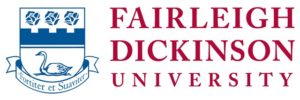June 2014
By Mary Farrell, Ph.D.
 Q: Why did you participate in the IDA Review process?
Q: Why did you participate in the IDA Review process?
A: Fairleigh Dickinson University was one of the first universities to offer teacher training in multisensory structured language reading instruction. We have trained teachers in the Orton-Gillingham approach using the Language Tool Kit since the late 1980s. Arlene Sonday, with repeated trips to New Jersey, helped us launch our program. In addition to building both awareness and capacity throughout New Jersey, a long-term goal for this training has been to disseminate information about this instructional approach to teaching reading throughout the higher education community. Participation in the IDA review process helped us further this goal.
Q: How was the experience of preparing for and participating in the review?
A: Because our program was already accredited by IMSLEC (International Multisensory Structured Language Educational Council), we were accustomed to the self-study and accreditation review processes. Also, as IMSLEC and IDA’s standards are so well aligned, we were in a comfortable position for a review. However, it was refreshing and helpful to look at our curriculum through a slightly different lens. Preparing for the review provided an opportunity to reflect on our curriculum as a whole, and to improve cohesion within and between courses using the IDA standards categories. Preparing for accreditation is always a team effort, and I have been fortunate to be able to rely on key individuals, such as Georgette Dickman and Judy Shapiro, our curriculum coordinators, throughout this process.
 Q: What does IDA Accreditation mean to your university?
Q: What does IDA Accreditation mean to your university?
A: IDA Accreditation is very important to our university. A primary goal of FDU is to establish centers of excellence throughout the university and to demonstrate that excellence through accreditation in all domains in which it is available. New Jersey has just passed a law that has raised awareness of dyslexia and requires professional development on effective strategies for teaching reading to students with dyslexia. The IDA accreditation and seal reinforce a growing awareness in the educational community of the need for evidence-based approaches and are an important part of our message for outreach to school districts. It is helpful to the teachers we train and the school districts in which they work to have our university training program validated by both IDA and IMSLEC, two national accrediting bodies.
Q: Describe some of the innovative ideas you have implemented to give students a richer practicum experience.
A: As with any teacher training program, we are always refining the training experience. In our opinion, we offer a very rich practicum experience. All training, including lectures and practicum, are either on campus, in school districts, or at one of the five New Jersey Children’s Dyslexia Centers. This provides our teachers with an opportunity to interact directly with faculty and also to develop peer relationships that lend tremendous support to teachers during their training. In addition, we have seen these relationships become a sustaining component of professional development.
Q: How has your program leveraged outside partnerships to increase students’ learning experience?
A: We have been fortunate to have a number of outside partnerships. A major partnership is with the FDU School of Education (SOE). Initially, I developed the Orton-Gillingham (O-G) Program as Director of the Graduate Learning Disabilities Program. As the O-G Program grew in size, it needed its own budget and a name clearly signifying its function, so the Center for Dyslexia Studies was established. Being a professor and faculty member in the SOE has made it easy to create and maintain aligned coursework with other SOE faculty members and programs. Candidates for the Instructor of Teaching and Therapy Levels take coursework in the Graduate Learning Disabilities Program to fulfill requirements for FDU’s Dyslexia Specialist (30-credit) Certificate; if they wish, they can use this coursework as a base to complete an MA in Learning Disabilities. The SOE also offers the Graduate Level Dual Literacy Certificate Program through which teachers earn the Orton-Gillingham Teacher Certificate, the FDU Literacy Certificate, and an MA for Certified Teachers. Teachers also have the option to apply this coursework toward New Jersey licensure as a Reading Specialist.
We have a long standing relationship with the New Jersey Branch of The International Dyslexia Association (NJIDA) with numerous mutually beneficial outcomes. For example, NJIDA’s two conferences each year give our graduates access to well-vetted professional development that can be used to fulfill continuing education requirements. In addition, we have been very fortunate to work with the Children’s Dyslexia Centers for almost fifteen years. The Masons provide the financial support for operating and staffing five centers in New Jersey; FDU supplies the graduate coursework and certified faculty for training the scholars at the centers. Finally, our partnerships with a number of school districts provide the opportunity to bring training to teachers’ own schools. This allows us to reach more teachers through the convenience of training located in their districts and also provides an immediate service of one-on-one instruction through our practica for struggling readers within the school district.
Mary Farrell, Ph.D., Professor and Director of Center for Dyslexia Studies, School of Education, Fairleigh Dickinson University
Copyright © 2014 International Dyslexia Association (IDA). We encourage sharing of Examiner articles. If portions are cited, please make appropriate reference. Articles may not be reprinted for the purpose of resale. Permission to republish this article is available from info@interdys.org.

